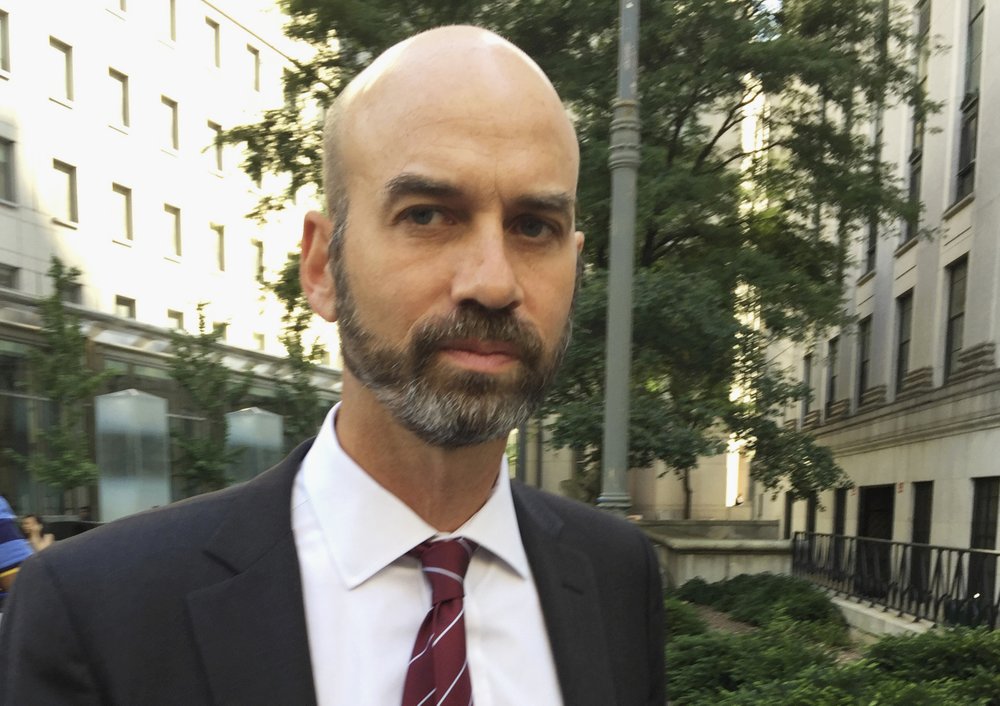
/Reuters
The New York Times
' editorial page editor James Bennet resigned Sunday after facing backlash for publishing an opinion piece by U.S. Senator Tom Cotton that advocated for using federal troops to quell protests.
The fallout was swift after the Arkansas Republican's piece was posted online late Wednesday. It caused a revolt among
Times
journalists, with some saying it endangered black employees. Others called in sick on Thursday in protest.
Following a review, the newspaper said Cotton's piece should not have been published, at least not without substantial revisions. It also announced that Katie Kingsbury, a Pulitzer Prize winner for editorial writing who joined the
Times
from the Boston Globe
in 2017, will oversee the opinion pages through the November elections.
New York Times
says controversial op-ed urging military incursion 'did not meet our standards'
After the initial protests, Bennet had defended for the article,saying it was important to hear from all points of view.He was editor of
The Atlantic
before taking over the Times
' opinion pages in 2016, and had received some heat for adding new voices, including conservative columnist Bret Stephens.
Times
publisher A.G. Sulzberger said in a statement that he was grateful for changes Bennet had made to the paper's opinion pages, including broadening the range of voices.

File photo of James Bennet. /AP
It was the second high-level journalism job lost because of mistakes made in coverage of the nationwide protests about the treatment of blacks by law enforcement. The top editor of the
Philadelphia Inquirer
, Stan Wischnowski, resigned Saturday after uproar over a headline that said, "Buildings Matter, Too."
Before Bennet's resignation, the
Times
newspaper has rescindedits support for Cotton's piece,saying in an editor's note Saturday that Cotton's piece, starting with the headline, "Send in the Troops," was "incendiary and should not have been used."
Cotton's essay, in which it referred to"left-wing radicals like antifa infiltrating protest marches to exploit" Floyd's death,was criticized by the newspaper that there has been little evidence of antifa's involvement in the demonstrations. The newspaperadded that Cotton's statement that police had borne the brunt of violence stemming from the demonstrations should have been challenged.
"Given the life-and-death importance of the topic, the senator's influential position and the gravity of the steps he advocates, the essay should have undergone the highest level of scrutiny,"the newspaper said.
Sulzberger had called for beefing up the opinion section's fact-checking and suggesting that it was publishing too many opinion pieces by outsiders.
File photo of Tom Cotton. /AP
Cotton on Sunday tweeted an initial copy of a
Times
article about Bennet's resignation, saying it was "false and offensive." He said he advocated using military force as a backup, only if police are overwhelmed, to stop riots — not against protesters.
Cotton re-tweeted President Donald Trump, who said that "the State of Arkansas is very proud of Tom.
The New York Times
is Fake News!"
Sulzbergersaidthe Cotton incident was "a significant breakdown in our editing processes, not the first we've experienced in recent years." The opinion section received criticism in 2019 for publishing an unsubstantiated allegation against U.S. Supreme Court Justice Brett Kavanaugh.
(With input from AP)
 简体中文
简体中文




